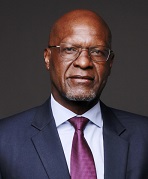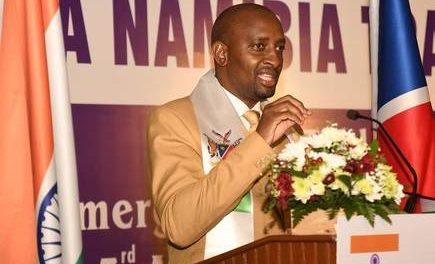
‘We must insist that critical raw materials are not exported without value being added locally’ says Alweendo

The Parliamentary Standing Committee on Economics and Public Administration is hosting a parliamentary oversight workshop this week on maximizing mining and energy potentials, discussing how the government can and must harness the full potential of the resource boom to spur Namibia’s economic growth and development.
The workshop will run from Monday, 29 May to Saturday, 3 June. It comes after the Standing Committee recently held oversight consultations with stakeholders in the mining and energy sector to understand the governance, government shareholding, and state of the mining sector from the custodians of that sector in Namibia.
The Minister of Mines and Energy, Hon Tom Alweendo on Monday delivered a keynote address at the oversight workshop held in Swakopmund at the Seaside Hotel and Spa.
“In the petroleum sector, oil has been discovered in sufficient quantities that justify commercial production. In the mining sector, because of the energy transition brought about by the global undertaking to address the effects of climate change, there is now a global demand for critical raw materials and metals. Some minerals, such as lithium, are available in our country,” Alweendo said.
He stressed that his ministry, therefore, has a clear window of opportunity to transform our economy. “We have the real potential to effectively address the triple social ills of unemployment, poverty, and inequality,” he added.
According to him, the mining sector and especially the critical raw materials, demand for critical metals and minerals is increasing sharply.
“For that reason alone, we cannot mine these minerals where they are exported in their basic raw form or where minimal value has been added. We must insist that critical raw materials are not exported without value being added locally. And where possible, we need to insist that processed minerals are used as inputs into locally manufactured goods, such as batteries, allowing us to export manufactured goods,” said Alweendo.
He also said the recent discoveries of oil and gas in commercial quantities hold great potential to transform “our economy beyond taxes and royalties” that would accrue to the state.
However, the minister insisted that it must be a requirement for the ‘International Oil Companies to ensure that all services that can immediately be provided by local entrepreneurs are acquired from them. “In cases where local entrepreneurs do not have the necessary capabilities to provide certain services, we will need to have a clear programme as to how to capacitate local entrepreneurs. This can be done, for example, through joint ventures with experienced international service providers,” he suggested.
Alweendo also touched on the issues of inclusivity, corruption, and the culture of entitlement, saying that there are examples across the world where the oil and gas sector in some countries has become an “exclusive” sector, dominated by a group of few individuals at the exclusion of most of the citizens, especially the ordinary citizens.
“This exclusion has resulted in huge social inequality that fueled social discontent and unrest. I hope that we give serious consideration to inclusivity in our discourse.
“The second issue is that of corruption – especially where public officials obtain private gains from holding public office. Among the practical challenges that have the potential to derail the effective management of our natural resources is corruption. To mitigate against corruption in the management of our natural resources and ensure that in-country value creation reaches ordinary citizens requires us to be transparent in all our conduct.
People that are not willing to acknowledge that as a Nation we will achieve better outcomes when all of us accept individual responsibilities. People with this attitude believe that society owes them something. They do not have to earn or deliver value for what they receive. They focus more on what they are owed than what they can contribute to society,” he said.
Furthermore, he encouraged all, especially entrepreneurs, to spare no effort in understanding the two sectors, to read up on what the sectors require, and to understand the required capabilities to be an effective participant.
Meanwhile, Erongo Governor Neville Andre said during his opening remarks of the workshop that he is grateful that the Standing Committee chose his region to deliberate in harmony and find “amicable” ways to maximize the potential of the mining and energy sectors.
“Considering the rich natural resources in the region, it was just the right decision to conduct this mining and energy sector indaba in the Erongo region,” he remarked.










































